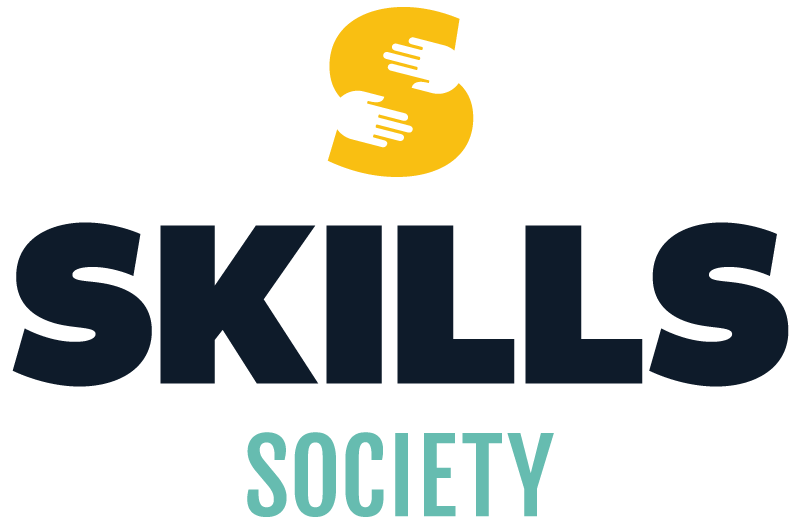Skills Society’s Response to Recent Defunding of Alberta Disability Advocacy Organizations
Skills Society is deeply concerned about the recent decision to defund disability self-advocacy organizations in our province. Disability rights has been at the heart of our work at Skills Society for over four decades since families first sparked our services. Our long established advocacy committee, led by volunteer board members has prepared information to highlight the history and ongoing importance of disability rights advocacy in our province. This is in no way a partisan issue; it is about safeguarding and supporting the rights and inclusion of people with intellectual disabilities we serve. Skills Society and Government leaders have long believed that ensuring the most marginalized can express their voice to government at municipal, provincial and federal levels is an essential component of a free and democratic society that aims to treat everyone with dignity and respect.
To be clear, Skills Society receives no funding for advocacy from the provincial government.
What is self-advocacy?
The voice of people with disabilities is often not heard in key decisions that affect their lives. Self-advocacy empowers people with disabilities to assemble, learn about their rights, speak up, and create advocacy campaigns around key issues they face. Self-advocacy groups and collectives also foster kinship, community, and support for people with disabilities.
The impact of defunding Alberta’s disability advocacy organizations¹
The Alberta government announced this month that the funding contract for three advocacy groups - the Southern Alberta Individualized Planning Association in Lethbridge, the Self-Advocacy Federation in Edmonton, and the Disability Action Hall in Calgary - will end in April 2025. Collectively, these groups, which also employ self-advocates, receive just under $425,000 per year, representing all or most of their funding.
The government has stated that funds will be reallocated to directly connecting individuals and families to supports and services, arguing that these organizations do not provide front-line services. However, these organizations provide unique and critical support that cannot be replaced by other advisory bodies and service providers:
For over 25 years, these organizations have helped people with intellectual disabilities speak up for their rights and share their experiences, working to ensure that people with intellectual disabilities have a direct voice in shaping policies on important issues like housing, transportation, and employment.
Beyond advocacy, these groups address service gaps by:
Helping people during crises, including mental health challenges, domestic violence, and food insecurity.
Supporting and connecting individuals with intellectual disabilities to resources, particularly those who cannot access or are on the waitlist for disability services.
Since 1998, the Alberta government has utilized and seen value in frontline disability advocacy groups. Government-appointed bodies that advise the Minister of Seniors, Community and Social Services (the Premier’s Council on the Status of Persons With Disabilities and the Disability Advocate) have gone to these groups for input.
Hear from self-advocates and allies in response to the decision:
Podcast (Courtney Theriault Show): https://open.spotify.com/episode/3rYKZxKRiqaV3M0E8qwnMy
“(Our community group) is such a small investment to really give a voice to a group that sometimes struggles to have a voice in this busy world where there is a lot of competing interest. …We appreciate government has difficult financial decisions, but this voice is critical.”[2]
- SCOPE Society
Why self-advocacy groups are essential
Supporting self-advocacy is essential to ensuring people with disabilities are seen and valued as citizens, with the same rights and opportunities as anyone else.
It is important to recognize why rights movements and self-advocacy groups have been, and continue to be, needed today. These groups arose out of necessity, responding to a collective history of treating people with developmental disabilities as less than human and subjecting them to terrible injustices in the not-so-distant past. Alberta’s history includes dark chapters of institutionalization and eugenics. Although no longer actively happening in Alberta, remnants of these ideas, discriminatory attitudes, and false beliefs around what people with developmental disabilities can do and have rights to, still exist today. This is why disability rights advocacy is still important today. Too often, others in their lives, services, and systems have made assumptions about what people with intellectual disabilities want or need, and decisions were made for them. While it is recognized that people with intellectual disabilities deserve the same respect, dignity, and rights as any other citizen, more work is needed to turn this recognition into meaningful action and systemic change. The systems of support provided by self-advocacy organizations remain essential to ensure individuals understand their rights, are empowered to act on them and amplify their voices.
Disability rights advocacy has been instrumental at Skills Society
Skills Society was founded in the 1980s as part of the broader rights movement led by self-advocates, families, and allies wanting more for their children and challenging limiting assumptions in all systems of care. Several self-advocates from our Skills Society community were involved in the creation of the Self-Advocacy Federation (SAF). Today, many individuals we support are active members of SAF and benefit greatly from the invaluable opportunities, resources, and supports the organization provides.
The contributions of and need for self-advocacy organizations cannot be overstated. These organizations serve as safe spaces where people with intellectual disabilities find community, learn about their rights, and access vital resources. Without them, many will lose critical lifelines for support and advocacy.
Skills Society remains committed to supporting self-advocacy in a non-partisan way, and that the rights and voices of people with intellectual disabilities are both heard and respected.
- Skills Society Volunteer Board Advocacy Committee
In the 1990s people we serve came together as self-advocates to create The Rights We Want! document. Still in use today, this document reminds Skills Society community members that people with disabilities have the same rights and responsibilities as any other citizen. You can hear from self-advocates and allies within Skills Society about the history and legacy of The Rights We Want! in the short documentary below.
More History of Disability Rights at Skills Society In this link
